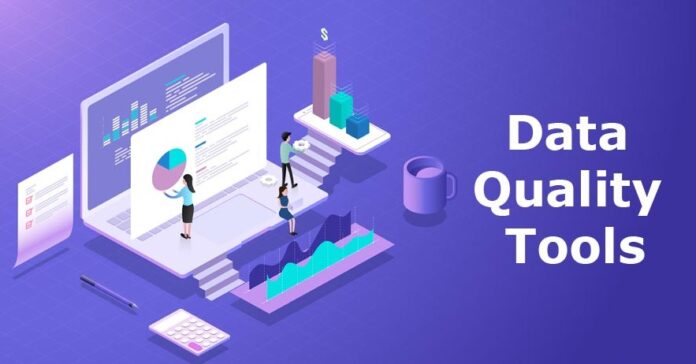In the era of big data, businesses have access to more information than ever. However, with this deluge of information comes the challenge of ensuring that the data collected and analyzed is accurate, consistent, and complete. Data quality issues can undermine a company’s decision-making ability and affect profitability. Fortunately, they are available to help address these challenges, providing organizations with various benefits that can significantly improve data management. Read the rest of the article below to find out more.
1. Improved Data Accuracy

They help identify and correct errors, ensuring that they are used for decision-making is accurate. Using tools like profiling, organizations can analyze it in large volumes, identifying any inconsistencies or errors, which can then be corrected. This ensures businesses are making decisions based on accurate facts, which, in turn, improves customer experience, operational efficiency, and overall productivity.
2. Enhanced Data Consistency
These tools help maintain a consistent view of across an organization. With consistent data, businesses can avoid any confusion or misunderstandings that arise from conflicting information. This improved consistency increases trust in the facts and significantly reduces the likelihood of errors, which can have severe implications for businesses. Additionally, it streamlines sharing across different departments, making collaboration and communication more efficient.
3. Increased Productivity
They can provide significant time savings for businesses, leading to increased productivity. One key way facts quality tools can save time is through automation.
Data Profiling
Profiling is one of the key features that can automate identifying errors in it. It scans it for quality issues, such as inconsistencies or missing values, and creates a report of potential errors. This significantly reduces the amount of manual work required to identify and correct these errors.
Time Allocation
By automating the profiling process, businesses can allocate resources to more productive tasks like analyzing it for insights. This allows businesses to make informed decisions based on high-quality, increasing productivity and profitability.
Reduced Manual Work
They also help reduce manual work by automating it validation, cleaning, and transformation processes. By reducing the amount of time spent on manual cleaning and transformation, businesses can focus on analyzing it for insights and making informed decisions based on high-quality.
4. Better Decision-Making

High-quality is essential for informed decision-making. They help ensure that the one used for decision-making is accurate, consistent, and complete. By using these tools, organizations can eliminate potential bias, streamline analysis, and gain a clear understanding of key metrics. This enables businesses to make data-driven decisions, leading to better customer experiences, profitability, and long-term growth.
5. Data Governance And Compliance
Data governance and compliance are critical considerations for businesses in many industries. Regulations often require businesses to have robust governance and compliance programs in place. These quality tools can help businesses meet these requirements by providing validation and auditing capabilities.
Data Validation
These tools can help ensure that it is accurate, complete, and consistent. This is especially important for businesses subject to regulations that require accuracy, such as healthcare or finance. They can also identify errors or inconsistencies, making it easier to correct it and avoid potential compliance issues.
Auditing
Auditing capabilities are another essential feature. These tools can track facts changes, providing a complete audit trail of all modifications. This information can help businesses demonstrate compliance with regulatory requirements, avoiding legal risks and potential penalties.
Data Governance
Data governance involves the management across an organization. It includes policies, procedures, and standards for management, as well as roles and responsibilities for stewardship. They can help businesses establish and maintain a strong facts governance program, ensuring compliance with regulatory requirements and reducing the risk.
6. Improved Insights
They enable businesses to gain deeper insights from their data. By identifying errors in data, organizations can ensure that analytics and reporting are based on accurate information. This provides a clear understanding of key performance indicators and helps identify trends, patterns, and correlations. With better insights comes improved decision-making, leading to better customer experiences, increased efficiency, and better long-term business performance.
7. Cost Savings
These tools can provide significant cost savings for businesses. Organizations can reduce labor costs and improve operational efficiency by eliminating manual validation and error checking. Additionally, the accuracy of their decisions will increase, potentially reducing losses due to human error. In addition, they can help reduce overall IT infrastructure costs by assisting organizations in addressing data problems quickly and efficiently.
8. Improved Data Security

In today’s digital age, data is a crucial asset for businesses of all sizes. However, the growth of digital technologies has also led to an increase in the number and sophistication of cyber attacks. Therefore, it is essential for businesses to use facts security tools to protect their sensitive information.
Validation and Monitoring
One of the key benefits of using data security tools is the ability to validate and monitor data regularly. This ensures that facts is accurate, up-to-date, and consistent. It also enables businesses to quickly detect any unauthorized changes or suspicious activity, reducing the risk of a security breach.
Access Control
They also allow organizations to classify and limit access to sensitive facts, preventing it from being accessed by unauthorized personnel. By controlling who has access to essential facts, businesses can ensure that it remains secure and confidential. Access control is especially important in highly regulated industries such as healthcare and finance, where compliance with privacy laws is essential.
Encryption
They can also provide encryption services that help protect it in transit and at rest. Encryption scrambles the facts, making it unreadable to anyone who doesn’t have the decryption key. This helps prevent unauthorized access and breaches.
Final Thoughts

Data quality tools play an essential role in helping businesses manage data effectively. By improving data accuracy, consistency, and completeness, businesses can enhance decision-making, increase productivity, and reduce risks associated with non-compliance. With the right facts quality tools in place, businesses can gain a competitive advantage, enabling them to be more effective in today’s fast-paced business environment. We hope that you were able to find out more by reading the article above.









